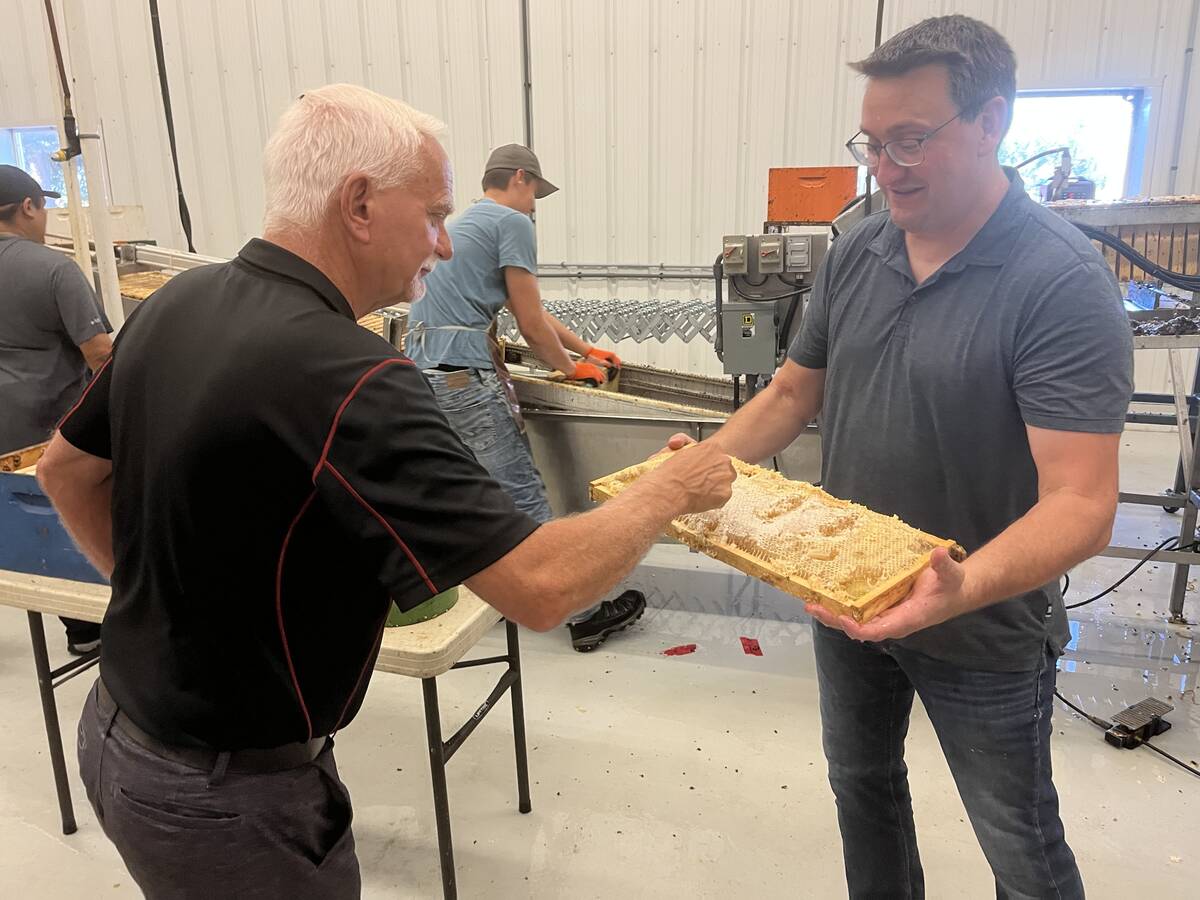YOUNG, Sask. – One day was too short. The rural women who spent Nov. 17 in the Lutheran church basement of this small town wanted more time to talk about health.
And it wasn’t about their arthritis or their mother’s Alzheimer’s.
Instead, the group of 15 was there to discuss the larger health-care system and how to improve it for them and their neighbours.
Group members were selected from those who had previously participated in a national survey of rural and remote women’s health that started in 2001. The Canadian Centres of Excellence for Women’s Health released the study in June and it revealed a long wish list. It said while one in five Canadian women lives in a rural area, their concerns are often disregarded by those in authority.
Read Also

Alberta honey business ‘thrives’ despite bumpy beginnings
Thrive Honey showcases its honey production in market where Alberta produces 40 per cent of all honey produced in the country
Recommendations were varied: mobile delivery of services to overcome transportation problems faced by rural dwellers; more use of midwives and nurse practitioners to ease the shortage of family doctors; and developing educational and other programs to reduce the impact of poverty on people’s health.
Now that the problems have been identified, this group was looking at how to lobby for action.
Round 2 started with 80-year-old Mae O’Hagan of Allan, Sask., calling for the work to be done by younger women because she has days “when you feel older than God.” A couple of other women took up her call, noting that men often called the shots because they are the surgeons, the researchers and the health system administrators.
Community college administrator Gayle McMartin of Watrous, Sask., said women have always been advocates for their families’ health needs.
“But we need to move on, break down the power structure. Challenge the power and the money.”
That is easier said than done, the group acknowledged, because few women are in politics or on boards. One woman noted they must educate the decision makers about rural issues and she questioned why most pilot projects are done in Saskatoon or Regina rather than rural areas.
McMartin said to be successful advocates they must find women who have a passion for health issues and are prepared to stick their necks out.
“We need an organization to push our action,” she said.
“Have one person in your group who can’t be hurt by losing a job.”
Unfortunately, there are no obvious rural women’s organizations. Most that were around just a decade ago are gone or dying, cut off from government funding and losing members to the need for off-farm jobs.
However, two volunteers from the group stepped forward to work with two others already connected to the Prairie Women’s Health Centre of Excellence.
Consisting of Diane Martz of Muenster, Sask., Gloria Borg of Nipawin, Sask., Lil Sabiston of Kelliher, Sask., and Joanne Havelock of Regina, the committee will look at reducing the health wish list and finding funding to push the rural agenda.
“We started medicare in Saskatchewan,” Sabiston said.
“Let’s fix it here.”
















